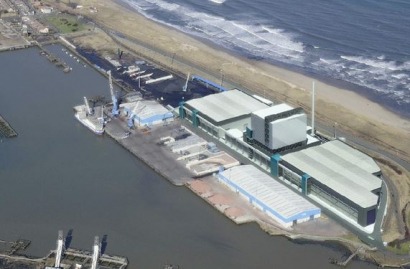
Once operational the 100 MW power station will be able to generate low carbon electricity to power the equivalent of over 170,000 UK households every year using sustainably sourced wood-based fuel.
The decision by the Secretary of State for Energy enables RES to deliver the £250 milion project, providing a significant investment in the Blyth and wider North East economy, as well as bringing hundreds of job opportunities during the two to three year construction process.
The North Blyth Biomass Power Station is RES' first biomass development, and joins an extensive and growing portfolio of onshore and offshore wind as well as solar energy projects that have been developed by the leading independent renewable energy generator.
"We are delighted by the Government's decision to grant permission for North Blyth Power Station, which we believe will play an important part in the strong and growing renewable energy industry in South East Northumberland," said RES Project Manager Chris Lawson. "It is also a welcome confirmation of the Government's support for sustainable, low carbon energy projects which will make a significant contribution towards meeting the UK's legally binding 2020 renewable energy targets."
Lawson added, "We now look forward to taking the project forward to construction and to kick starting this multi-million pound investment in the Blyth Estuary area."
As a 'Nationally Significant Infrastructure Project', the North Blyth Biomass Power Station has been subject to extensive scrutiny and consultation with a wide range of stakeholders, from local councils, business and environmental and statutory bodies through to national government.
RES also engaged extensively with the local communities around the project over the last four years.
"We have really appreciated the interest and input that the local community has given to the North Blyth Biomass Power Station, and in particular the work of the Community Liaison Group (CLG)," Lawson said. "We will continue to work with the CLG, as well as local residents and business, as we move towards starting construction next year. We also look forward to engaging with local people on the Community Benefit Fund that the project will bring."
RES anticipates that construction will start in 2014 and would last for around two and a half years.
For additional information:

